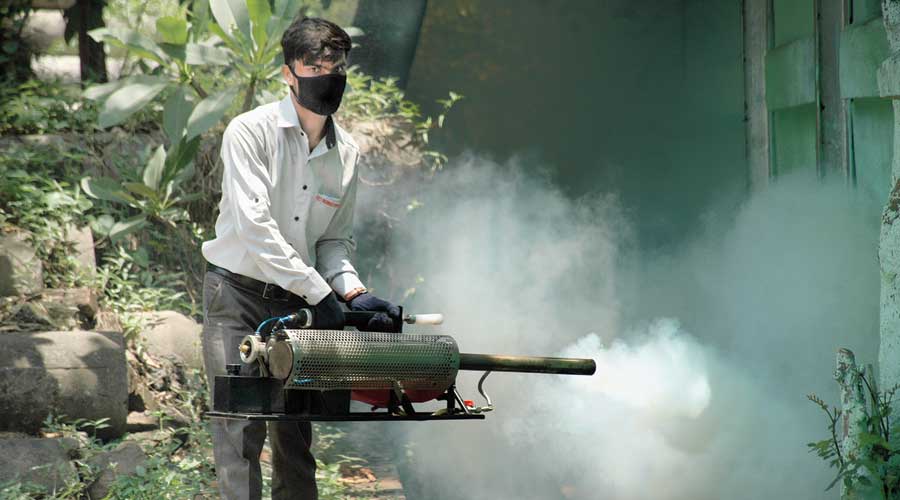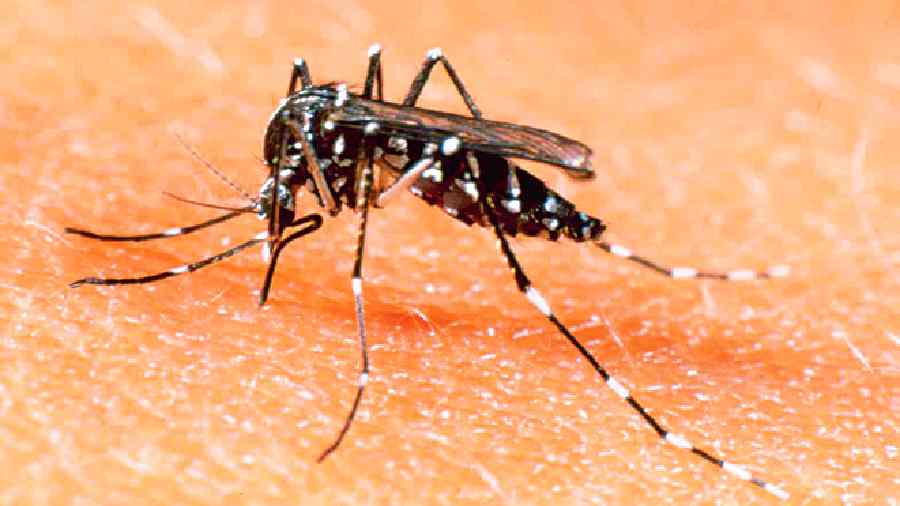Vector-control drives and awareness campaigns need to be conducted around the year, instead of a few weeks, to combat mosquito-borne diseases, public health experts said as new dengue infections are galloping in the city and the state.
At least four people died of dengue in Kolkata in the last week.
“Year-long vector control activities and awareness campaigns will not allow people to forget the lessons about what is to be done to prevent mosquito breeding. The authorities have to create and publicise a reporting mechanism where common people will report about mosquito breeding grounds whenever they come across any,” said Shanta Ghatak, a former medical consultant with the World Health Organization (WHO).
“Awareness messages have to be delivered in an interesting way so that people listen to them and see them. The objective has to be to make people hear or notice the messages,” said Ghatak, who has worked with governments of many east African countries where mosquito-borne diseases are a huge problem.
Prevention of dengue outbreaks centres around vector control.
“The current vector control measures are restricted primarily to the use of insecticides and community cleanup or awareness campaigns, which have had little impact on dengue control,” she said.
“Several shortcomings exist in the form of unavailable trained human resource, prohibitive cost, improper planning for quality service delivery, insecticide resistance, sustainability and environmental safety. Several factors impede the effective implementation of the integrated vector management strategy advocated by the WHO and the National Vector Borne Diseases Control Programme,” Ghatak said.
Madhumita Dobe, a former head of the department of health promotion and education at the All India Institute of Hygiene and Public Health, too, said year-long awareness campaigns help drive home the message better.
Success in fighting vector-borne diseases will come when common people act as eyes and ears of government authorities, she said.
There are other reasons why year-long vector-control drives are necessary.
The pupa of the Aedes aegypti mosquito, the transmitter of the dengue virus, can survive without water in a dry container for up to eight months, said an entomologist. When it receives water, even the morning dew, it will grow into a fully developed mosquito. It is for this reason that year-long drives and campaigns are necessary.
“Only throwing away water from the container will not always help. People need to scrub the container so that the pupae, if any, are destroyed,” said the entomologist.
Even during dry months, there should be activities to destroy dry and unused containers lying open under the sky. The Kolkata Municipal Corporation claims it conducts year-long campaigns and vector-control drives but Kolkatans say otherwise.
Several Kolkatans said vector-control workers of the KMC who are supposed to destroy mosquito-breeding sites are almost never seen during winter and summer.
There are no awareness campaigns on mass media, social media or through other means during these months.
Even during monsoons, their visits are infrequent.
Vector-control teams of the KMC visit their neighbourhoods after gaps of 15 to 20 days, many have alleged.
Some have not seen such teams in weeks or months.
Since an Aedes aegypti mosquito is born within eight or 10 days of the laying of the egg, visits after 10 days fail to have the required impact.


